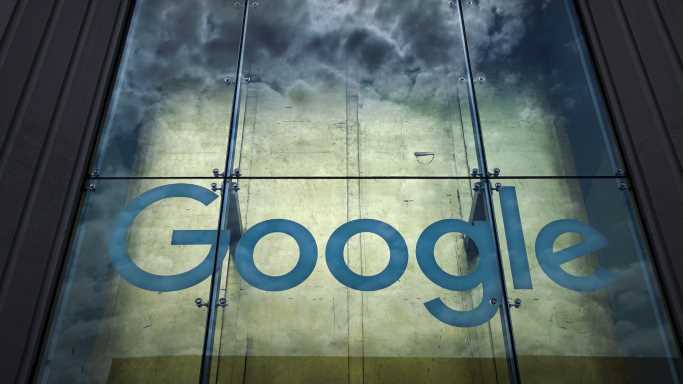Before artificial intelligence became the next big thing, artists had begun filing lawsuits claiming copyright infringement on their work. OpenAI, the creator of ChatGPT, released its Dall-E image generator in January 2021. A year later, in March, Midjourney released the first version of its AI image generator, followed in August by stability.ai’s Stable Diffusion generator. The first lawsuit seeking damages for the unauthorized use of images in generative AI programs was filed this past February. (These are the worst business ideas in America.)
Because the AI programs, which create images from written prompts, were trained by using work created by real people, the original creators believe they should be paid for the use of that work. The notion that artists whose work is used to generate AI creative content ought to be compensated also has taken hold with major media companies.
AI program developers OpenAI, Microsoft, Google and Adobe have reportedly been meeting with news publishers like News Corp, Axel Springer (Politico), the New York Times and the Guardian to work out a solution to copyright issues related to AI products. According to a report in the Financial Times, sources familiar with the discussions say a deal “could involve media organisations being paid a subscription-style fee for their content in order to develop the technology underpinning chatbots such as OpenAI’s ChatGPT and Google’s Bard.”
What’s at stake for the big media firms is nothing less than survival, according to News Corp. At a media conference in May, Robert Thomson said that media’s “collective IP is under threat and for which we should argue vociferously for compensation.” Further, the Financial Times reports, he claimed that AI was “designed so the reader will never visit a journalism website, thus fatally undermining that journalism.”
A possible payment model suggested by Mathias Döpfner, CEO of Axel Springer, would be similar to the way music is currently licensed on a per-use basis. Exactly how an AI program would be able to keep tabs on an idea is difficult to fathom.
Some sort of blanket agreement for unlimited use of a company’s (or an artist’s) work is another option. While this might work for the giants, it would be difficult to impossible for a small news outlet to manage.
According to a Financial Times source, Google has “accepted the principle that there needs to be payment . . . but we have not got to the point of talking zeros.” One media executive said the publishers have been talking about annual payments of $5 million to $20 million for the use of their content to train AI models.
That is literally peanuts. Google currently pays Apple an estimated $15 billion a year to remain the default search engine on all Apple devices. A class action lawsuit filed in California last year accuses the two companies of having a non-compete agreement stipulating that Apple will stay out of the search engine business if Google pays up.
The U.K.’s Competition and Markets Authority (CMA) also has said the arrangement crimps competition in the search engine market. In April, the British government introduced legislation that would allow the CMA to levy fines of up to 10% of their global revenue on firms that use “their size and power to limit digital innovation or market access …”
AI companies argue that because other creators’ content is used only to train their models, the AI-bot output is original, thus shielding the firms from charges of plagiarism and infringement. Tech giants like Google and Microsoft can afford to pay a few million dollars as insurance against lawsuits, but individuals and small media companies have no way to enforce their claims unless they sue, an expensive proposition at best.
One company that has tried to come to grips with creators’ rights is Shutterstock. The company created a Contributor Fund that compensates artists for their contributions to training OpenAI’s model. According to Shutterstock’s October 2022 announcement, the fund provides “provide additional compensation for artists whose works have contributed to develop the AI models. The Company also aims to compensate its contributors in the form of royalties when their intellectual property is used.”
It is still early days. As usual, though, the technology has outrun the status quo. What remains to be seen is if and how media companies can catch up.
Sponsored: Tips for Investing
A financial advisor can help you understand the advantages and disadvantages of investment properties. Finding a qualified financial advisor doesn’t have to be hard. SmartAsset’s free tool matches you with up to three financial advisors who serve your area, and you can interview your advisor matches at no cost to decide which one is right for you. If you’re ready to find an advisor who can help you achieve your financial goals, get started now.
Investing in real estate can diversify your portfolio. But expanding your horizons may add additional costs. If you’re an investor looking to minimize expenses, consider checking out online brokerages. They often offer low investment fees, helping you maximize your profit.
Source: Read Full Article
-
Net FDI in India down to $3 billion in April-August
-
How Adani Saga Affects Indian Banks
-
Netflix Bill Comes Due As Streaming Giant Begins Clampdown On Password Sharing In U.S.
-
US To Ship 50 Bcm LNG To Fill European Supply Gap In 2023
-
Eight months after rolling back farm laws, Centre sets up MSP panel

